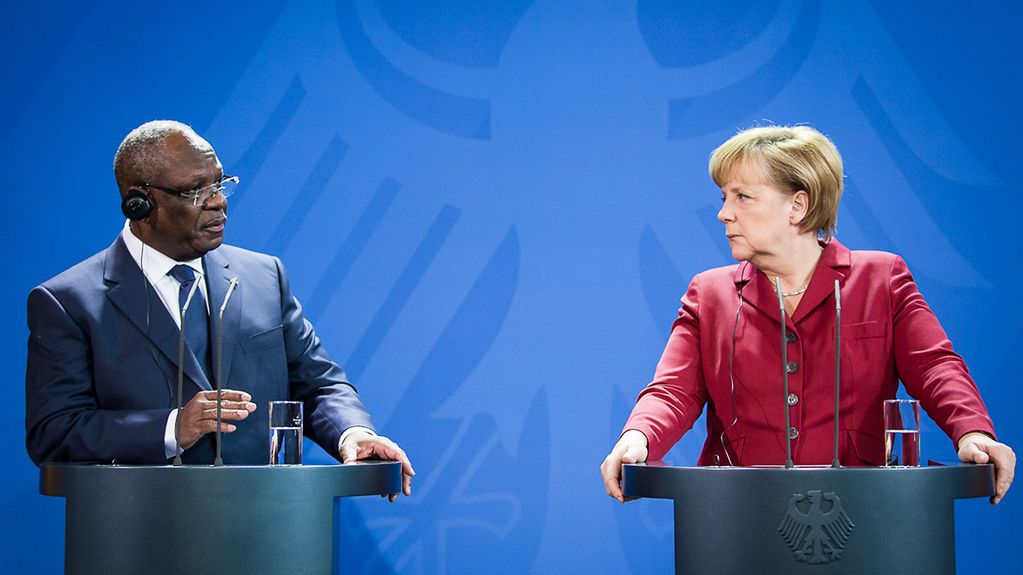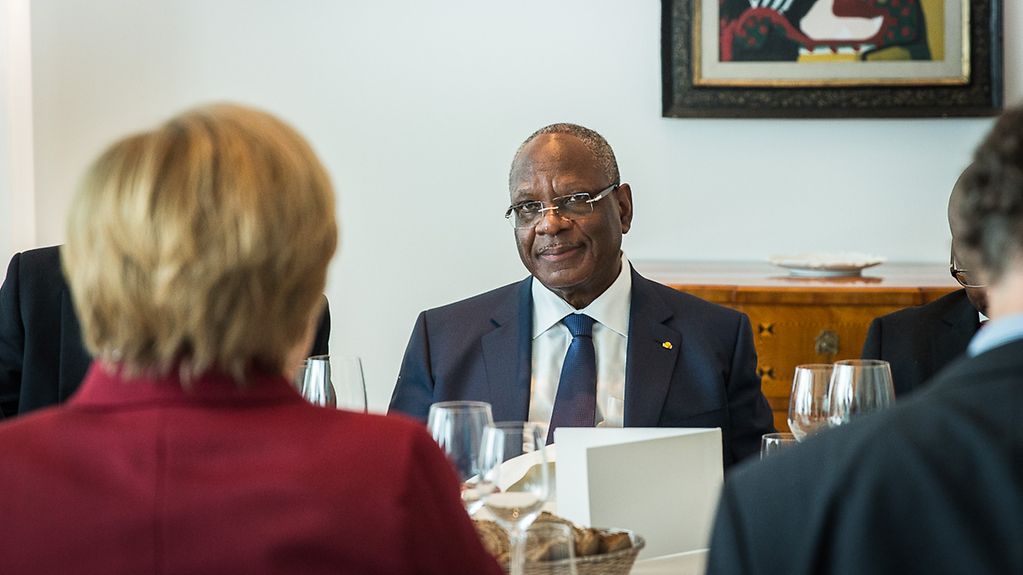Germany/Mali
Chancellor Angela Merkel has discussed the current situation in Mali with President Ibrahim Boubacar Keïta. Their talks in Berlin focussed on the return to democracy, reconciliation with the north of the country and bilateral cooperation.
2 min reading time

The process Mali is going through gives grounds for hope but must continue, said the Chancellor
Photo: Bundesregierung/Denzel
The United Nations Multidimensional Integrated Stabilization Mission in Mali (MINUSMA) and the EU’s training mission (EUTM) were singled out for special attention. The work of the German troops involved in both missions was warmly praised.

Lunch at the Federal Chancellery
Photo: Bundesregierung/Denzel
Germany to stand by Mali
The Chancellor stressed that Germany was the first country to recognise Mali’s independence in September 1960. One year ago, Germany supported the French mission in Mali, thus contributing to the country’s progress.
Germany is working extremely closely with Mali on further developments, so as to ensue swift success. The process thus far, “gives grounds for hope but must continue,” underlined Angela Merkel. A democratic President has been elected and democracy promoted.
Rule-of-law process progressing
Another success is the training of four battalions of the Malian security forces by the European Union training mission, said the Chancellor. And Mali's former coup leader General Amadou Sanogo has been arrested. The rule-of-law process throughout the country is progressing.
President Ibrahim Boubacar Keïta declared that Germany is, "Mali’s most important partner in the world". He also stressed that he government would be taking rigorous and active steps to stamp out corruption. A sound judiciary is also being put in place. And he assured the Chancellor that Mali would be "accountable for every cent it received".
100 million euros for Mali
At a donor conference for Mali in May 2013, Germany pledged 100 million euros. A delegation of representatives of various Malian ministries will be visiting Germany at the start of next year to consult on how the sum is to be used.
The Chancellor thanked President Keïta for all that has already been achieved, and expressed her hope that Mali can become a success story.
Meeting with Federal Foreign Minister Guido Westerwelle
Federal Foreign Minister Guido Westerwelle also met with the Malian President. On the agenda were bilateral relations, stabilisation within Mali, reconciliation with the north of the country and the security situation in the Sahel.
Development and economic relations
In March 2013, bilateral development cooperation with Mali was resumed. For 2013/2014 a sum of 100 million euros has been pledged at political level, to be disbursed in line with the progress made with the process of democratic transition.
Mali, one of the poorest countries in the world, benefits from extensive debt relief. German technical and financial cooperation services are provided in the form of non-repayable grants. Between 1960 and 2010 Germany provided a total of about 1.1 billion euros for Mali.
In 2012 Germany imported 3.6 million euros worth of goods from Mali and exported goods worth 81.2 million euros to Mali, primarily textiles and clothing, vehicles and vehicle parts, machinery and plant, and chemical products (according to UN Comtrade). Trade between the two nations is thus relatively unimportant.